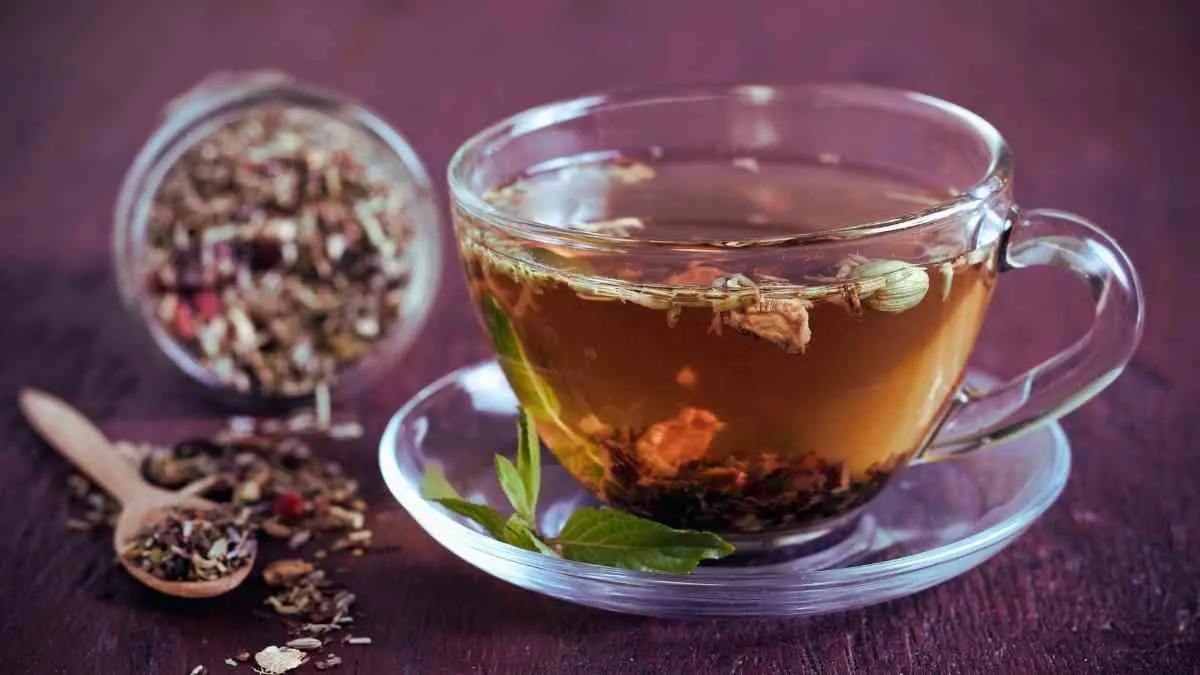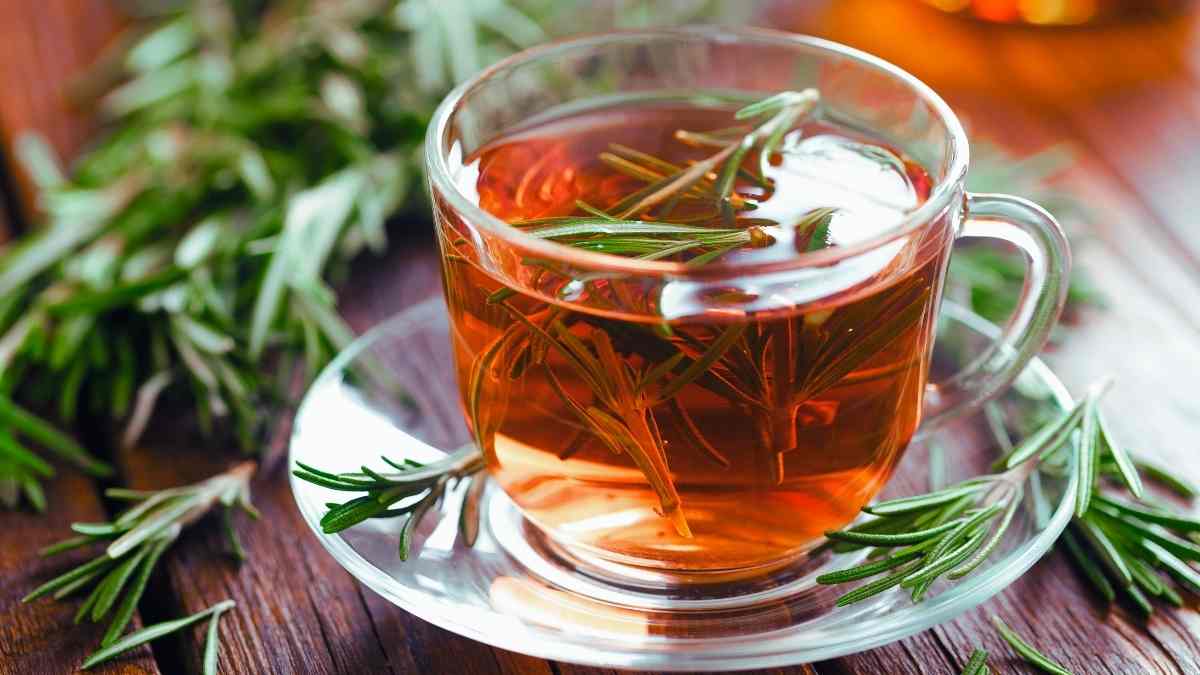Herbal teas, also known as tisanes, are beverages made by infusing herbs, flowers, seeds, or fruits in hot water. Unlike traditional teas derived from the Camellia sinensis plant, herbal teas are caffeine-free and offer a diverse range of flavors and health benefits.
This article delves into Why Herbal Tea Is Good For You, multifaceted health advantages of herbal teas, supported by scientific research, and provides insights into their therapeutic properties.
What Is Herbal tea?
Herbal tea, also known as a tisane, is a beverage made by infusing herbs, flowers, fruits, seeds, or leaves in hot water. Unlike traditional tea, which is made from the leaves of the Camellia sinensis plant, herbal tea is caffeine-free and offers a wide variety of flavors and health benefits.
Common ingredients used in herbal teas include peppermint, chamomile, ginger, hibiscus, and rooibos. Each herb or plant used can provide unique therapeutic properties, such as promoting relaxation, aiding digestion, boosting immunity, or supporting heart health. Herbal teas have been consumed for centuries for both their taste and their medicinal qualities.
Depending on the type of herb or plant, herbal teas can offer numerous health benefits, including antioxidant properties, anti-inflammatory effects, and stress relief. Herbal tea is an excellent alternative for those seeking a healthy, caffeine-free drink that can be enjoyed at any time of the day.
Why Herbal Tea Is Good For You:

Find Why Herbal Tea Is Good For You, offering natural benefits that calm the mind, boost digestion, and support overall wellness.
1. Rich in Antioxidants
Many herbal teas are abundant in antioxidants, compounds that combat oxidative stress and protect the body from cellular damage. For instance, green tea is renowned for its high polyphenol content, particularly catechins, which have been associated with reduced risks of chronic diseases such as cancer and cardiovascular conditions. NCBI
2. Supports Digestive Health
Herbal teas like peppermint and ginger have been traditionally used to alleviate digestive discomforts. Peppermint tea can relax the muscles of the gastrointestinal tract, reducing symptoms of irritable bowel syndrome (IBS) and indigestion. Ginger tea, on the other hand, is known to stimulate digestion, reduce nausea, and alleviate bloating and gas. Verywell Health
3. Enhances Immune Function
Certain herbal teas possess antimicrobial and immune-boosting properties. Echinacea tea, for example, has been studied for its potential to reduce the duration and severity of colds. Similarly, elderflower tea is believed to have antiviral properties, making it a popular choice during flu season. ARS
4. Promotes Relaxation and Improves Sleep Quality
Herbal teas such as chamomile and lemon balm are well-known for their calming effects. Chamomile tea contains apigenin, an antioxidant that binds to benzodiazepine receptors in the brain, promoting relaxation and improving sleep quality. Lemon balm tea has been shown to reduce anxiety and improve cognitive function, making it beneficial for stress management. Harvard Health
5. Aids in Weight Management
Some herbal teas may assist in weight management efforts. Green tea, for instance, has been linked to increased fat oxidation and improved metabolic rate, potentially aiding in weight loss. Additionally, herbal teas like dandelion and hibiscus are believed to have diuretic properties, helping to reduce water retention. ScienceDirect
6. Supports Heart Health
Regular consumption of certain herbal teas may contribute to cardiovascular health. Hibiscus tea has been shown to lower blood pressure in individuals with prehypertension or mild hypertension.
The anthocyanins and polyphenols present in hibiscus are thought to contribute to these heart-protective effects. ARS
7. Cognitive Benefits
Herbal teas like ginseng and rosemary have been studied for their potential cognitive-enhancing effects. Ginseng tea may improve memory and cognitive function, while rosemary tea is believed to stimulate circulation to the brain, potentially enhancing concentration and memory. The Times of India
8. Anti-inflammatory Properties
Chronic inflammation is linked to various health issues, including arthritis and heart disease. Herbal teas such as turmeric and ginger have anti-inflammatory properties.
Turmeric tea contains curcumin, a compound known for its anti-inflammatory effects, while ginger tea can reduce inflammation and pain associated with conditions like osteoarthritis. ScienceDirect
9. Skin Health
The antioxidants found in herbal teas can also benefit the skin. Green tea, for example, has been associated with reduced signs of aging and improved skin elasticity. Additionally, herbal teas like rooibos are rich in alpha hydroxy acids and zinc, which are beneficial for skin health. Cris
10. Hydration and Detoxification
While water is essential for hydration, herbal teas can also contribute to fluid intake. Many herbal teas are naturally caffeine-free and can be consumed throughout the day to maintain hydration.
Moreover, herbal teas like nettle and dandelion are believed to support detoxification processes in the body by promoting kidney function and urinary health. PubMed
Recommended: Golden Tea | Health Benefits
Last Call:
- Incorporating herbal teas into your daily routine can offer a myriad of health benefits, from enhancing digestion and boosting the immune system to promoting relaxation and supporting heart health.
- While herbal teas can be a valuable addition to a healthy lifestyle, it’s important to consult with a healthcare provider, especially if you are pregnant, nursing, or taking medications, to ensure that the herbal teas you choose are safe and appropriate for your individual health needs.
Frequently Asked Questions:
Q1: Are herbal teas safe to consume daily?
A1: Generally, herbal teas are safe for daily consumption. However, it’s advisable to consult with a healthcare provider if you have specific health conditions or are taking medications.
Q2: Can herbal teas replace prescription medications?
A2: Herbal teas should not replace prescribed medications. They can complement medical treatments but should not be used as a substitute.
Q3: How many cups of herbal tea should I drink daily?
A3: The optimal number of cups varies depending on the type of herbal tea and individual health considerations. Typically, 1-3 cups per day are recommended.
Q4: Are there any side effects associated with herbal teas?
A4: While rare, some individuals may experience allergic reactions or interactions with medications. It’s important to be aware of any personal sensitivities.
Q5: Can herbal teas aid in weight loss?
A5: Some herbal teas, like green tea, may support weight loss efforts by boosting metabolism and fat oxidation. However, they should be part of a balanced diet and exercise regimen.
For more detailed information on the health benefits of herbal teas, you may refer to the following sources:

